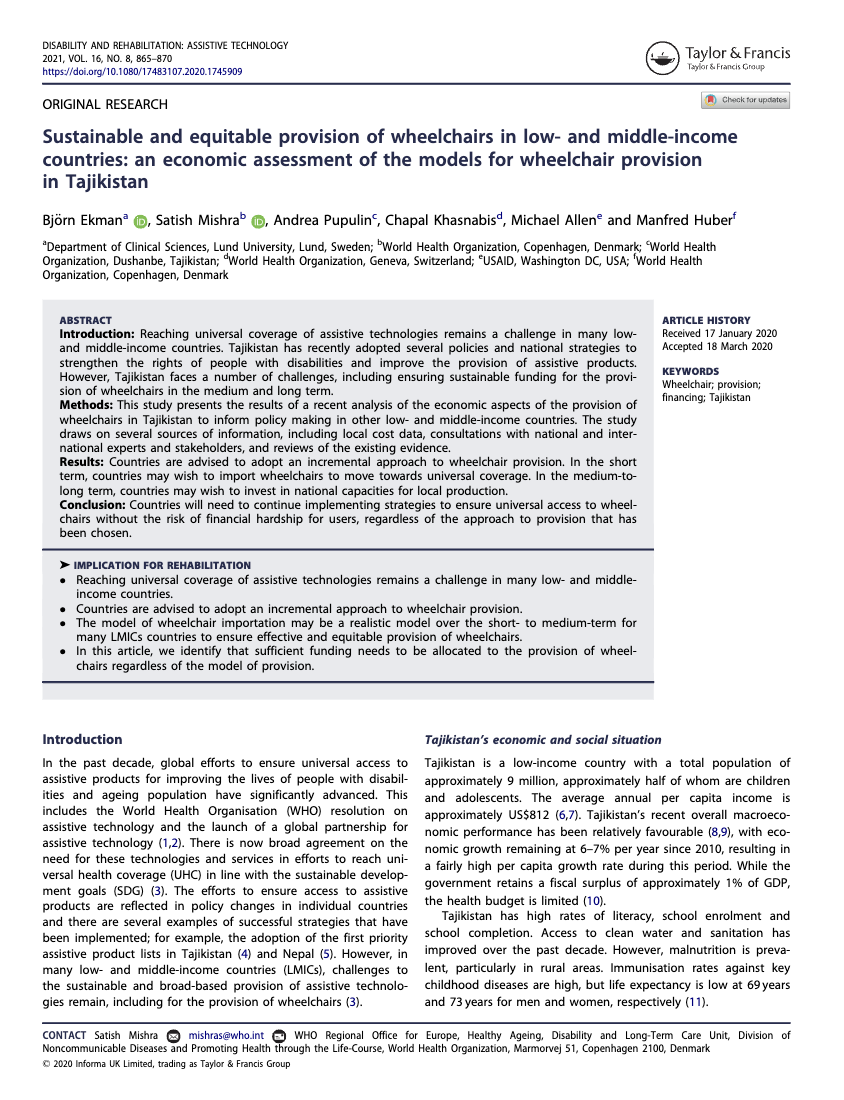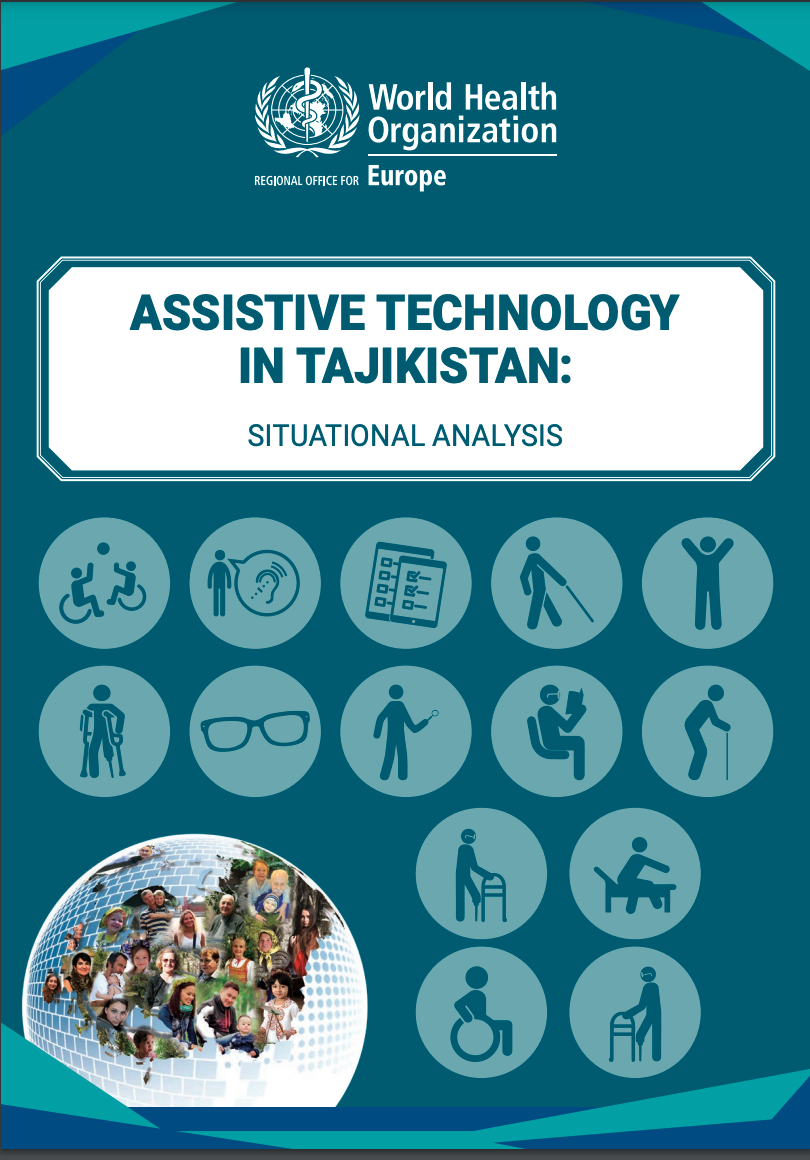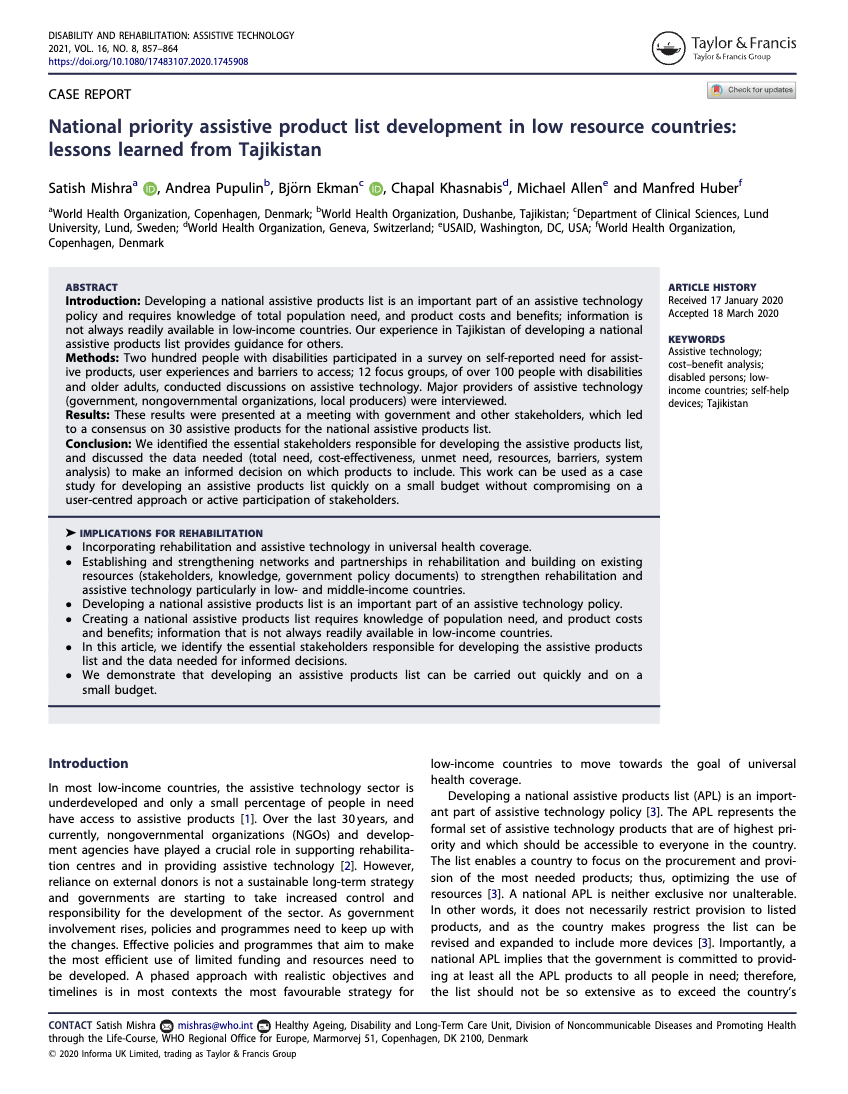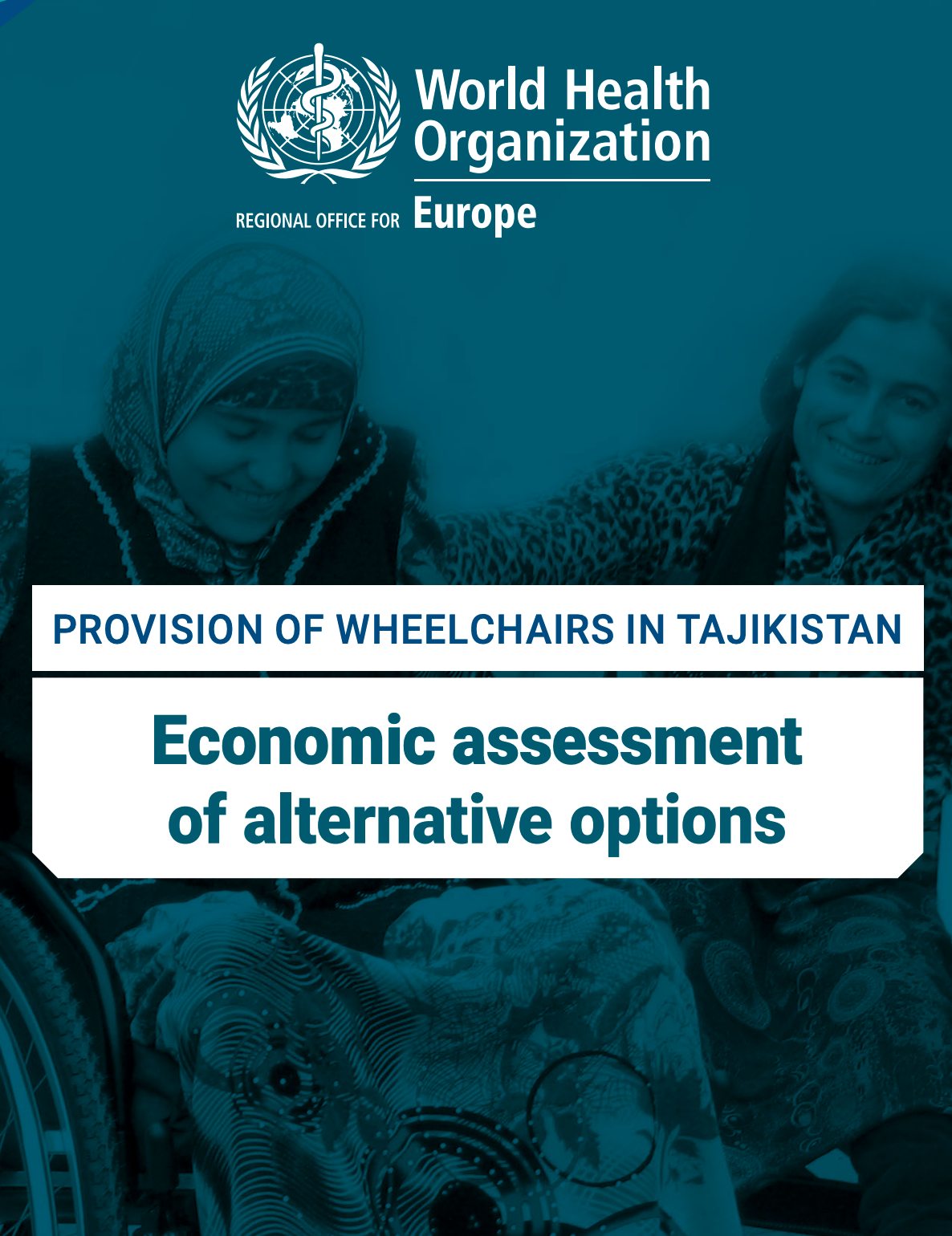Search Our Whole site:
Just Search: Tajikistan

Sustainable and equitable provision of wheelchairs in low- and middle-income countries: an economic assessment of the models for wheelchair provision in Tajikistan
Reaching universal coverage of assistive technologies remains a challenge in many low- and middle-income countries. Tajikistan has recently adopted several policies and national strategies to strengthen the rights of people with disabilities and improve the provision of assistive products. However, Tajikistan faces a number of challenges, including ensuring sustainable funding for the provision of wheelchairs in the medium and long term.

Assistive technology in Tajikistan: situational analysis
This publication summarizes the current gaps, needs and opportunities for intervention in the field of assistive technology in Tajikistan. The situational analysis was conducted under the leadership of the Ministry of Health and Social Protection, Republic of Tajikistan and with technical support from the WHO Country Office, Tajikistan. It was undertaken in collaboration with different Government ministries and State agencies, development partners, United Nations agencies, nongovernmental organizations, disabled people’s organizations and users of assistive products. It adopted a realist synthesis approach, responsive to the unique social, cultural, economic and political circumstances in the country. The evaluation focuses on assistive technology policy and governance, service provision and the impact of assistive technology on the health and well-being of individual users and their families, with the aim of improving access to high-quality, affordable assistive products in T

National priority assistive product list development in low resource countries: lessons learned from Tajikistan
In most low-income countries, the assistive technology sector is underdeveloped and only a small percentage of people in need have access to assistive products [Citation1]. Over the last 30 years, and currently, nongovernmental organizations (NGOs) and development agencies have played a crucial role in supporting rehabilitation centres and in providing assistive technology [Citation2]. However, reliance on external donors is not a sustainable long-term strategy and governments are starting to take increased control and responsibility for the development of the sector. As government involvement rises, policies and programmes need to keep up with the changes. Effective policies and programmes that aim to make the most efficient use of limited funding and resources need to be developed. A phased approach with realistic objectives and timelines is in most contexts the most favourable strategy for low-income countries to move towards the goal of universal health coverage.

Provision of wheelchairs in Tajikistan: economic assessment of alternative options
Overview This publication presents the results of a study on the economic aspects of various models for the provision of wheelchairs in Tajikistan. The study was conducted under the leadership of the Ministry of Health and Social Protection, Republic of Tajikistan and with technical support from the WHO Country Office, Tajikistan. The study was finalized in consultation with Tajik users of wheelchairs, the Ministry of Health and Social Protection and international experts on wheelchair production and provision, and made use of national and international evidence on the provision of wheelchairs to inform the analysis and develop evidence-based policy options. While the study focuses on the Tajik context and its aspirations to expand in-country production of wheelchairs, its approach and findings will also be of interest to other countries in a similar situation and to other interested stakeholders.